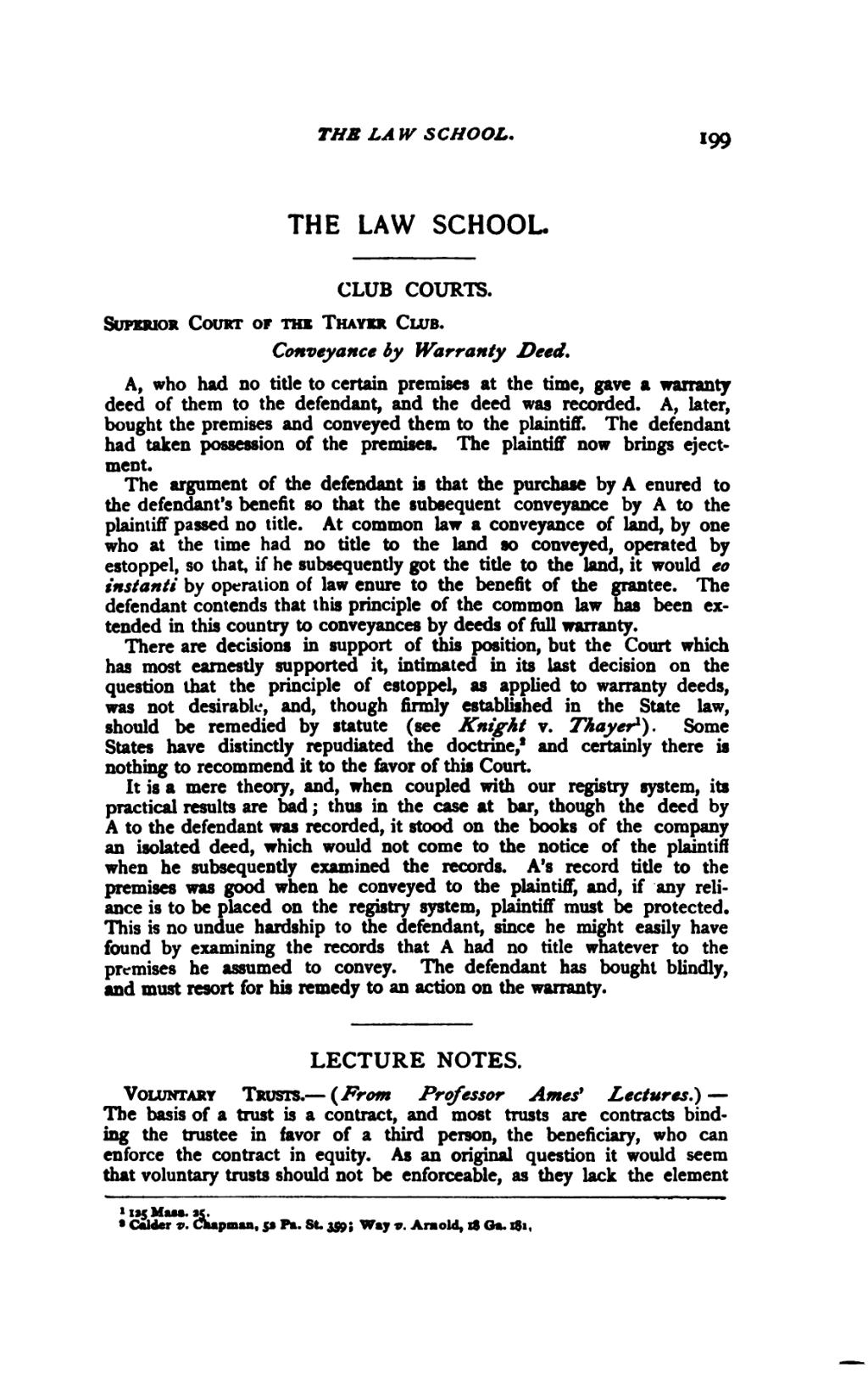THE LAW SCHOOL.
CLUB COURTS.
Superior Court of the Thayer Club.
Conveyance by Warranty Deed.
A, who had no title to certain premises at the time, gave a warranty deed of them to the defendant, and the deed was recorded. A, later, bought the premises and conveyed them to the plaintiff. The defendant had taken possession of the premises. The plaintiff now brings ejectment.
The argument of the defendant is that the purchase by A enured to the defendant’s benefit so that the subsequent conveyance by A to the plaintiff passed no title. At common law a conveyance of land, by one who at the time had no title to the land so conveyed, operated by estoppel, so that, if he subsequently got the title to the land, it would eo instanti by operation of law enure to the benefit of the grantee. The defendant contends that this principle of the common law has been extended in this country to conveyances by deeds of full warranty.
There are decisions in support of this position, but the Court which has most earnestly supported it, intimated in its last decision on the question that the principle of estoppel, as applied to warranty deeds, was not desirable, and, though firmly established in the State law, should be remedied by statute (see Knight v. Thayer[1]). Some States have distinctly repudiated the doctrine,[2] and certainly there is nothing to recommend it to the favor of this Court.
It is a mere theory, and, when coupled with our registry system, its practical results are bad; thus in the case at bar, though the deed by A to the defendant was recorded, it stood on the books of the company an isolated deed, which would not come to the notice of the plaintiff when he subsequently examined the records. A’s record title to the premises was good when he conveyed to the plaintiff, and, if any reliance is to be placed on the registry system, plaintiff must be protected. This is no undue hardship to the defendant, since he might easily have found by examining the records that A had no title whatever to the premises he assumed to convey. The defendant has bought blindly, and must resort for his remedy to an action on the warranty.
LECTURE NOTES.
Voluntary Trusts.—(From Professor Ames’ Lectures.)—The basis of a trust is a contract, and most trusts are contracts binding the trustee in favor of a third person, the beneficiary, who can enforce the contract in equity. As an original question it would seem that voluntary trusts should not be enforceable, as they lack the element

